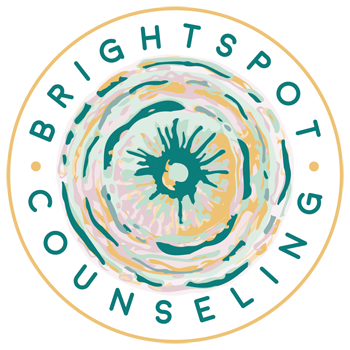“Yeah, But My Pain Hurts More”

Madison Marcus-Paddison, LMSW
- Maybe you’re sick of staying at home.
- Maybe you’ve tested positive for COVID19.
- Maybe you’re exhausted from working overtime.
- Maybe you’ve been forced to close your business doors and aren’t sure where your next paycheck is coming from.
- Maybe you feel like you can’t stop eating ALL THE THINGS.
- Maybe you’re eating less so you can avoid taking another trip to the food bank.
- Maybe you are home all day trying not to snap while navigating the ins-and-outs of home-schooling your children who seem to have far too much energy.
- Maybe your IVF cycle was postponed without a reschedule date anywhere in the near future.
- Maybe you’re stuck at home all day with your spouse and rethinking your relationship.
- Maybe you’re quarantining by yourself and wishing you had a relationship.
There’s this thing called comparative suffering- and it goes a little something like this:
Person A: I am having trouble with ____________ and it’s making me feel ____________.
Person B: (Internally) Why are they complaining when they know my situation is so much worse than theirs? (Outloud) Yeah, that sucks.
Person B then stops talking to Person A.
Social distancing + comparative suffering can quickly turn into emotional distancing, and feeling more isolated is the last thing anyone needs right now. So how do we cancel our tickets to the pain olympics?
Pain is Pain
To oversimplify it, thinking “I shouldn’t complain about my broken ankle when ______ has a broken leg”, doesn’t make it hurt any less. If there’s one thing we all have in common, it’s that we know what it feels like to suffer. Physical, emotional, financial pain- I think we can all agree pain isn’t something we would voluntarily sign up for. But when someone’s reaction to pain feels exaggerated to another by comparison- this can create resentment, a breakdown of trust and a loss of connection. David Kessler, a leading expert in the field of grief and suffering says it best- “the worst loss is always your loss”.
When Someone is Sharing Their Grief, the Last Thing They Want to Hear is “At least…”
We’ve all had our fair share of “everything happens for a reason” or “this too shall pass”. These statements can feel dismissive and the person on the receiving end may hear you saying “it’s really not as bad as you’re making it out to be”.
So, if they’re so unhelpful, why do these sayings survive the test of time? Because we’re always trying to cheer up those we love by helping them “look on the bright side”. But to that person, there might not be a bright side, and they just need to vent. It’s important to get it out because if you don’t, it hurts even more.
You’re Not Going to Run Out of Empathy and Compassion, So Don’t Be So Stingy With It!
Empathy and compassion make us feel seen and understood. You can’t exactly be “in the red” on this ledger, so you don’t have to hoard it all for yourself. In fact, empathy and compassion are the founding fathers of healthy relationships- what you give, you typically get in return. You might not know what it feels like to experience what someone else is going through- but I’m sure you can identify with their feelings about it.
Here are some empathy statements for you to have on deck if you’re not feeling confident in being able to improvise empathy (it’s not cheating, I promise, it’s practicing!).
- OBSERVE the feeling. “I can see this is upsetting/frustrating/disappointing/distressing/etc. for you”
- If _____ happened to me, I would feel the same way”
- “Of course you feel _______, why wouldn’t you!?”
- “I hear you.”
- “You really are doing everything you can, right now.”
- “It’s not fair.”
- “I hate that you’re in this position”.
- “Thank you for sharing that with me, I know it was difficult for you”.
- “I can’t fix this for you, I wish I could…but I am here to listen whenever you need”.
But What do You do When You Feel Like Someone’s Situation Really Isn’t THAT Bad?
Remember, pain is pain. Even if the situation would strike you differently, it doesn’t mean the feelings associated with it are completely foreign to you. If you can’t see past the situation, focus on the person’s feelings, and resist the urge to compare or one-up. Keeping our difficulties in perspective does not mean we don’t express them. When we create a safe place for others to do that without judgment, minimizing, or comparison, we get the same in return.




